Cisco Unified Communications vs Unify
June 05, 2023 | Author: Adam Levine
12
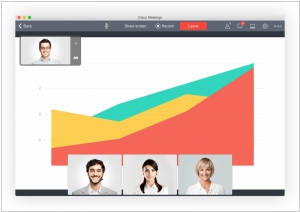
With Cisco Unified Communications, your company can connect co-workers, partners, vendors, and customers with the information and expertise they need, access and share video on the desktop, on the road, and on-demand, as easily as making a phone call, facilitate better team interactions, dynamically bringing together individuals, virtual workgroups, and teams, make mobile devices extensions of the corporate network so mobile workers can be productive anywhere
1
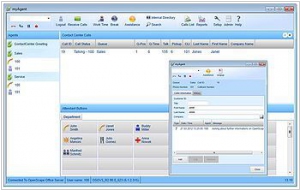
Unify empowers today's anywhere workers with the tools to communicate and collaborate more productively. By synchronizing technologies, creating an engaging user experience and weaving communications seamlessly into the way businesses operate, we empower an increasingly mobile workforce to work better together.
Cisco Unified Communications and Unify (formerly known as Siemens Enterprise Communications) are both leading providers of communication and collaboration solutions, but they have distinct differences in terms of their offerings and focus. Cisco Unified Communications is a comprehensive suite of products that integrate voice, video, messaging, and collaboration tools into a unified platform. It includes features such as IP telephony, video conferencing, instant messaging, presence, and contact center capabilities. Cisco Unified Communications is known for its scalability, robustness, and extensive integration options with other Cisco networking and security solutions. On the other hand, Unify offers a range of communication and collaboration solutions with a focus on unified communications, team collaboration, and contact center capabilities. Unify's flagship product is OpenScape, which provides features such as voice calling, conferencing, messaging, and mobility solutions. Unify is recognized for its strong presence in the enterprise market, interoperability with various PBX systems, and a user-friendly interface.
See also: Top 10 Unified Communications software
See also: Top 10 Unified Communications software
Cisco Unified Communications vs Unify in our news:
2015. Atos acquires unified communications system Unify from Siemens
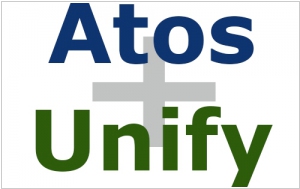
Atos Origin, a France-based company, has announced its acquisition of Unify for a sum of $371M, signifying its entry into the enterprise unified communications market. Notably, Siemens AG, the previous owner of Unify, now holds a 12% stake in Atos. This acquisition is expected to yield mutual benefits for both companies. As a prominent services firm, Atos gains access to one of the leading products in the emerging WCC (Workplace Collaboration and Communication) domain. The product's "as a service" delivery model makes it appealing not only to IT buyers but also to various lines of business, allowing Atos to cater to a broader audience and extend its market reach.
2014. Cisco-Jive and 5 other Unified Collaboration leaders
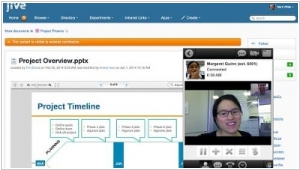
Large enterprise customers have grown increasingly impatient, seeking a single solution that offers collaboration, social interactions, and real-time communication without the need for extensive integration projects. To meet this demand, software vendors have coined the term "Unified Collaboration" and now market their solutions under this banner. However, not every IT giant is capable of building such a comprehensive system on their own. In some cases, collaboration becomes necessary. For instance, leading unified communications provider Cisco recently partnered with social networking provider Jive, announcing that they now offer the best solution in the market. Nevertheless, industry experts highlight that Cisco faces strong competition from five key rivals: Microsoft (Yammer + Lync), IBM (IBM Connections + IBM Sametime), Citrix (GoToMeeting + Podio), Siemens (Unify + Ansible), and Salesforce (Chatter + DimDim). However, it should be noted that the latter two vendors are currently considered potential competitors, as their Unified Communications (UC) solutions are not yet fully developed.
2014. Cisco and Google unite against Microsoft on the Unified Communications market
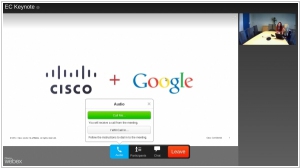
Cisco is a competitor to Microsoft's Lync in the unified communications market, while Google competes with Microsoft in the operating system market. Therefore, it makes sense for Cisco and Google to establish a partnership, and that's exactly what they did. Recently, the companies brought Cisco Unified Communications systems and Cisco Webex to Google Chromebooks. This development provides yet another incentive for large companies to consider upgrading their Windows XP licenses (which ended in April) to the free ChromeOS rather than the paid Windows 8. Furthermore, Google and Cisco have successfully integrated Cisco communication systems with the Google Apps suite. As a result, users can now schedule online Webex and Cisco UC meetings through Google Calendar and initiate voice and video calls directly from GMail and Google Contacts.


